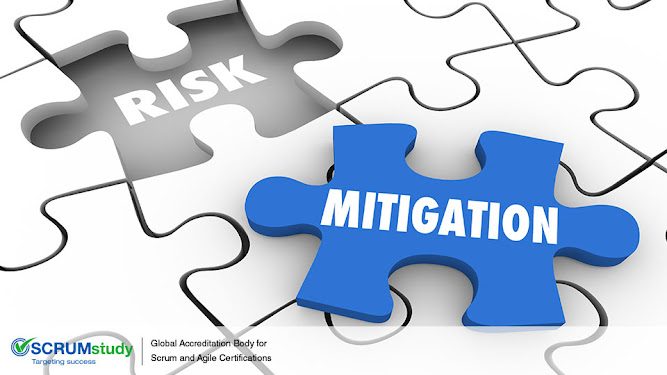Creating an Effective Study Schedule for Scrum Certification
Embarking on the journey to earn a Scrum certification can be a transformative step in your career, especially if you are aiming to excel in agile project management. However, navigating the vast amount of information and the intricacies of Scrum principles can be overwhelming. The key to success lies in creating an effective study schedule that not only covers all essential topics but also fits seamlessly into your daily routine. In this guide, we'll explore how to craft a study schedule that maximizes your efficiency and prepares you thoroughly for your Scrum certification.
Understanding Scrum and the Certification Process
Before diving into the study schedule, it's crucial to understand what Scrum is and the certification options available. Scrum is an agile framework that helps teams work together to develop, deliver, and sustain complex products.
Step-by-Step Guide to Creating Your Study Schedule
1. Assess Your Current Knowledge Level
Start by assessing your current understanding of Scrum principles. Take a few practice tests or quizzes available online. This initial assessment will help you identify your strengths and the areas that need more focus.
2. Set Clear Goals and Milestones
Define your ultimate goal (e.g., passing the CSM exam) and break it down into smaller, manageable milestones. This could include completing specific chapters of the Scrum Guide, understanding key concepts like roles, events, and artifacts, and finishing practice exams.
3. Create a Study Plan
Your study plan should outline what topics you will cover each day. Here’s an example:
Week 1: Introduction and Basics
Day 1: Introduction to Agile and Scrum Framework.
Day 2: Scrum Roles - Scrum Master, Product Owner, Development Team.
Day 3: Scrum Events - Sprint, Sprint Planning, Daily Scrum.
Day 4: Scrum Events (continued) - Sprint Review, Sprint Retrospective.
Day 5: Scrum Artifacts - Product Backlog, Sprint Backlog, Increment.
Day 6: Principles and Values of Scrum.
Day 7: Review and Recap of the Week.
Week 2: Deep Dive into Scrum Practices
Day 1-2: Detailed Study of Product Backlog Refinement.
Day 3-4: Sprint Execution and Monitoring Progress.
Day 5-6: Understanding and Implementing Scrum Metrics.
Day 7: Mock Test and Review.
Week 3: Advanced Topics and Final Preparation
Day 1-2: Scaling Scrum and Scrum of Scrums.
Day 3-4: Handling Challenges and Common Pitfalls in Scrum.
Day 5: Advanced Scrum Practices and Case Studies.
Day 6: Final Revision.
Day 7: Full-Length Practice Test.
4. Allocate Specific Time Slots
Decide on the best times for you to study. Whether it’s early in the morning, during lunch breaks, or late at night, consistency is key. Aim for at least 1-2 hours of focused study time each day.
5. Incorporate Active Learning Techniques
Active learning techniques such as summarizing information in your own words, teaching the concepts to someone else, or creating mind maps can enhance retention and understanding. Regularly take quizzes to test your knowledge and track your progress.
6. Join Study Groups or Online Communities
Participating in study groups or online forums can provide additional support, resources, and different perspectives on Scrum concepts. Discussing with peers can clarify doubts and solidify your understanding.
7. Take Care of Your Health
Studying for certification can be intense. Make sure to prioritize both your physical and mental well-being. Take regular breaks, eat nutritious meals, stay hydrated, and get enough sleep. Exercise can also help in maintaining focus and reducing stress.
Maintaining Motivation and Discipline
Maintaining motivation throughout your study journey can be challenging. Here are some tips to stay on track:
Visualize Success: Imagine the benefits of becoming certified, such as career advancement and new job opportunities.
Stay Positive: Keep a positive mindset and remind yourself why you started this journey.
Adjust as Needed: If you find certain strategies aren’t working, be flexible and adjust your study plan.
Final Tips Before the Exam
As the exam date approaches, focus on these final preparations:
Review Key Concepts: Go over your notes and key concepts regularly.
Simulate Exam Conditions: Take practice exams under timed conditions to get used to the pressure.
Rest Well: Ensure you are well-rested before the
Creating an effective study schedule for Scrum master certification requires planning, dedication, and flexibility. By setting clear goals, using a variety of study materials, incorporating active learning, and taking care of your health, you can enhance your chances of success. Remember, the journey to becoming a certified Scrum professional is a marathon, not a sprint. Stay focused, stay motivated, and you'll achieve your certification goals.
Embark on this journey with confidence, and soon you'll be a certified Scrum expert, ready to lead agile teams to success.




Comments
Post a Comment